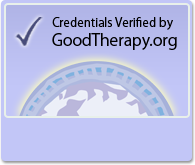Oppositional Defiant Disorder/Conduct Disorder
Conduct Disorder in teens is a very serious problem. These teenagers have a history of serious aggression towards people and animals, have destroyed property, routinely lie and steal, and seriously violated the rules. The essential characteristic of Conduct Disorder is a lack of empathy towards others to such an extreme that the basic rights of other people are violated without feelings of guilt or shame. Some teenagers may want to appear as if they do not care about other peoples' basic rights however this is usually an attempt by them not to feel guilt or shame or it may be an attempt not to deal with the emotional consequences of their actions. Teenagers with conduct disorder genuinely do not care about other people. This makes them very difficult patients to help because they are not interested in changing. They also tend to have an unrealistic and inflated sense of self-esteem which makes it difficult for them to admit that they need help. These teenagers may also have difficulty recognizing emotions in others that do not related to violence like sadness or tenderness and often interpret these as attempts to manipulate them.
Oppositional Defiant Disorder can be thought of like Conduct Disorder "light". These teenagers also exhibit a lot of anger and disobedience but lack the genuine disregard for the basic rights of others. These teenagers tend to be very argumentative, rebellious, and defiant. They have difficult taking responsibility for their actions and prefer to blame other for their mistakes. These teenagers can also be cruel to a lesser degree than children with conduct disorder but may still be spiteful and vindictive. Deliberately annoying and/or angering people is also common for these teens and they may get a sense of delight and power out of these provocations.
Please schedule a free consultation if your teenager is exhibiting any of these behaviors.
By Miguel Brown


